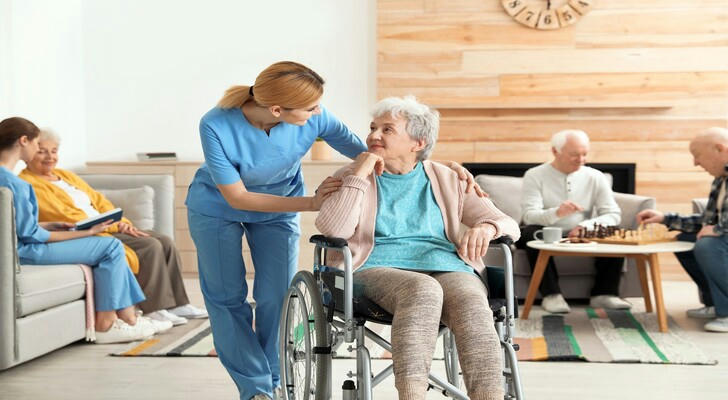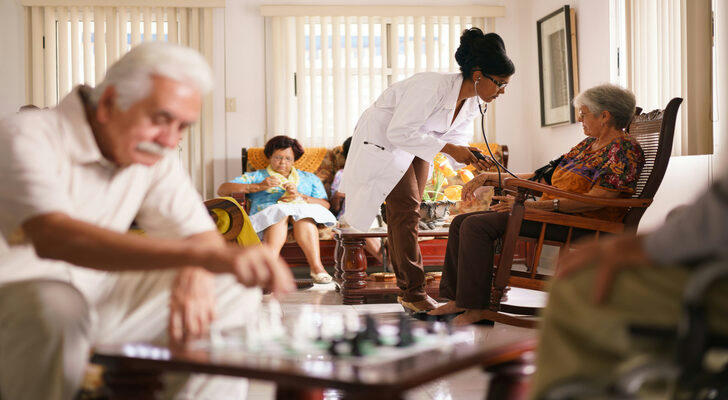Nutrition Management for the Elderly is Booming! 3 Health Skills You Should Master When Caring for Them

As the global population ages, nutritional management of older adults has become an important aspect of maintaining health and well-being. As the aging process progresses, a range of health challenges often arise that require a specific dietary approach. Proper nutrition plays a key role in improving the quality of life of older adults, helping to prevent chronic disease and supporting overall longevity. This article will explore three important health skills to master when caring for an older adult to ensure they are getting the proper nutrition they need.
1: Focus on Balanced Nutrients The Foundation of Elderly Nutrition.
One of the most important aspects of caring for the elderly is ensuring they get a balanced diet with the right mix of nutrients. As people age, their nutritional needs shift, making it essential to pay closer attention to what they eat. A well-rounded diet can help reduce the risk of chronic conditions such as heart disease, diabetes, and osteoporosis.
** Key Nutrients to Include:**
• Protein: Aging muscles tend to lose mass and strength, which can be counteracted by increasing protein intake. The National Institute on Aging suggests that older adults need 1.0 to 1.2 grams of protein per kilogram of body weight to maintain muscle health.
• Calcium and Vitamin D: These nutrients are essential for bone health, especially since older adults are at higher risk of osteoporosis. A study published in the Journal of Clinical Endocrinology & Metabolism found that adequate vitamin D and calcium intake can help reduce fractures in the elderly.
• Fiber: Digestive health becomes more challenging as people age. A diet rich in fiber helps prevent constipation, lowers cholesterol levels, and keeps the digestive system functioning well. Aim for around 25 to 30 grams of fiber per day, according to the cademy of Nutrition and Dietetics.
Tips for Ensuring Nutrient Balance:
• Offer a variety of fruits and vegetables, especially those high in antioxidants, to reduce inflammation and support immune function.
• Lean meats, fish, and plant-based proteins like beans and lentils should be included regularly to meet protein needs.
• Include whole grains like oatmeal, quinoa, and brown rice to boost fiber intake.

2: Hydration Is Key: Keeping Older Adults Well-Hydrated.
As people age, the body’s ability to sense dehydration decreases, which can lead to chronic dehydration if not managed properly. Dehydration in elderly individuals can cause fatigue, confusion, urinary tract infections, and even kidney problems.
Why Hydration Matters:
• Dehydration can worsen existing health conditions, such as high blood pressure, and can interfere with the function of medications. According to the National Institute of Diabetes and Digestive and Kidney Diseases (NIDDK), older adults are at higher risk of dehydration due to reduced kidney function and lower body water content.
• The National Academies of Sciences, Engineering, and Medicine recommend that older adults consume about 2.7 liters (91 ounces) of water per day for women and 3.7 liters (125 ounces) for men, including all beverages and food.
Tips for Ensuring Proper Hydration:
• Encourage regular intake of fluids throughout the day, even if the elderly person doesn’t feel thirsty.
• Infuse water with fruits like lemon, berries, or cucumber to make it more appealing.
• Provide broths, soups, or smoothies, which are hydrating and easy to consume, especially for those with difficulty swallowing or eating solid foods.

3: Mind the Risk of Malnutrition: Monitoring Food Intake and Special Needs.
Malnutrition is a significant concern among the elderly, especially those who may have a reduced appetite, difficulty chewing, or trouble preparing meals. The consequences of malnutrition can be severe, including weakened immune systems, poor wound healing, muscle loss, and a higher risk of infections.
Signs of Malnutrition:
• Weight loss without trying.
• Difficulty swallowing or chewing.
• Fatigue, dizziness, or weakness.
• A lack of interest in food or a decline in appetite.
** Tips for Preventing Malnutrition:**
• DOffer smaller, more frequent meals that are easy to digest and nutrient-dense.
• For those with chewing difficulties, try offering soft foods, such as mashed potatoes, yogurt, or soups, that are high in calories and protein.
• Monitor food intake carefully and work with a healthcare provider to address specific needs, such as vitamin deficiencies or the need for supplements.
• Provide fortified foods or shakes, especially for individuals who may have trouble getting enough nutrients through solid food alone.
Conclusion: Mastering the Skills for Elderly Care.
Proper nutrition management is one of the most effective ways to enhance the health and quality of life for elderly individuals. By focusing on balanced nutrient intake, ensuring proper hydration, and preventing malnutrition, caregivers can make a significant difference in an elderly person’s well-being. As the demand for elderly care grows, mastering these health skills can ensure that older adults receive the attention they need to thrive in their later years.
Remember that nutrition isn’t just about food—it’s about creating an environment that supports physical health, mental clarity, and overall well-being. With the right approach, elderly individuals can continue to live happy, fulfilling lives well into their golden years.
